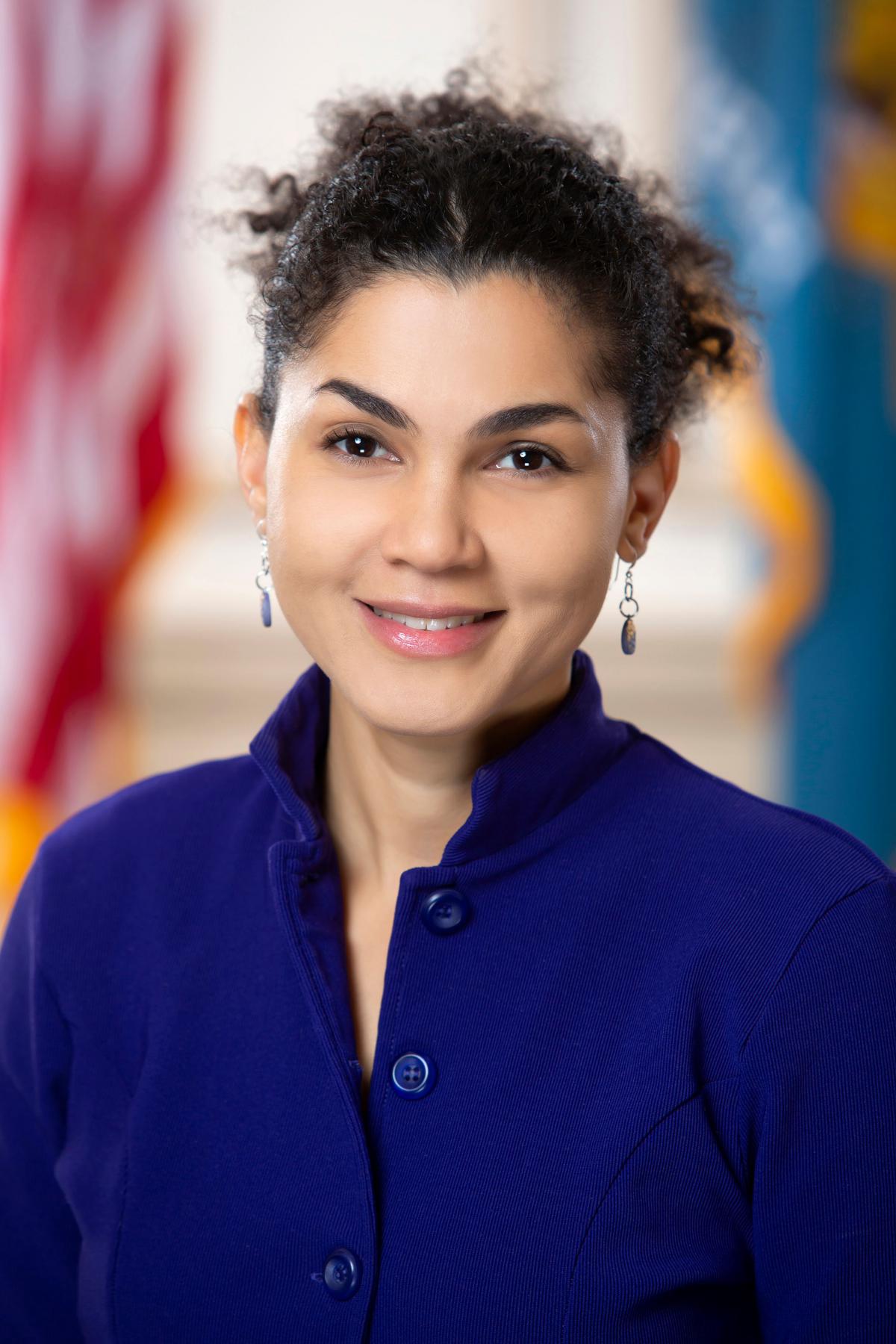Last fall, the lawsuit demanding changes to the state’s education funding system was settled. And since then, state and county governments have started fulfilling the obligations set out for them in those settlements.
This week, contributor Larry Nagengast looks at what’s been accomplished so far, and if calls from advocates for even more to be done will be heeded
As the now-ending school year began, the prolonged effort to remove inequities in Delaware’s public education funding system seemed stuck in neutral.
Now, as summer nears, the movement is definitely forward – not full speed ahead, but forward nonetheless and in a very historic way.
Improved state funding for schools is in the works, along with an update of real estate assessments, and there are strong signs that a long-sought overhaul of an archaic school funding system will soon begin.
“There is the momentum and optimism around the issue of school funding,” says Christine Cannon, executive director of the Arsht-Cannon Fund and a member of the steering committee at Education Equity Delaware, a coalition of 30-plus nonprofits, community organizations and education advocates that has been pushing for improved funding to benefit low-income students and English learners for more than five years.
“It’s the beginning of a very dramatic change,” says Dan Rich, a University of Delaware professor of public policy who has been involved in education reform issues for many years. “It’s the beginning of a process of reshaping the public education funding and support system…. It’s not going to happen all at one time, but it is happening.”
Rich’s positive assessment contrasts sharply with the feelings expressed by school reform advocates as the school year was beginning.
“I am not optimistic about them being willing to settle. They haven’t given me any reason to be optimistic,” Jea Street, a member of Delawareans for Education Opportunity and the NAACP Delaware State Conference of Branches, said last August, referring to the status of the lawsuit those groups had filed in January 2018 against Gov. John Carney, Secretary of Education Susan Bunting, State Treasurer Colleen Davis and the officials responsible for collecting school property taxes in each of the state’s three counties.
Since then, the needle has moved – from pessimism to progress.
In October, the state defendants agreed to settle their portion of the suit, promising to provide additional funding to benefit low-income children, English learners and students in kindergarten through third grade who have special needs.
Then, from January through April, the suit’s “county track” was settled as New Castle, then Kent and finally Sussex, agreed to move forward on reassessing real estate within their boundaries, a process set for completion before property tax bills are sent out in the summer of 2024. The lawsuit had alleged, and Vice Chancellor J. Travis Laster agreed, that the assessments now used by the counties are so outdated as to be unreliable. The last assessments were conducted in 1974 in Sussex, 1983 in New Castle and 1987 in Kent.
In some respects, the Covid-19 pandemic opened a path to the settlement.
With many schools relying on remote learning or adapting to hybrid schedules, “the pandemic really highlighted the inequities [faced by disadvantaged students] and made them completely undeniable,” said state Sen. Elizabeth “Tizzy” Lockman, a Wilmington Democrat who is also co-chair of the Redding Consortium for Educational Equity, the latest state-created panel charged with recommending policies and practices to achieve educational equity and improve outcomes for disadvantaged students.
Also, as the school year began, state and local governments, including school districts, feared a loss of revenue due to the pandemic and, in September, Democratic primary elections yielded a slate of candidates perceived as more progressive and supportive of education reforms.
Taken together, according to those close to the case, those circumstances created a situation in which financial factors nudged the plaintiffs toward accepting somewhat less than everything they sought while the primaries suggested to Carney that the incoming legislators were likely to be more receptive to meeting the plaintiffs’ requests.
Now, the General Assembly and Carney are close to fulfilling the promises Carney made in agreeing to the settlement in October. Prodded by the Redding Consortium, the state is contemplating an even more significant step – possibly overhauling a school funding system that has been in place for some 70 years.
What Carney and the General Assembly do by the end of the legislative session on June 30 will help determine how quickly the next steps are taken.
“With June 30 right around the corner, we are reaching a bit beyond what the settlement requires. We are trying to demonstrate the ways we should be investing” to advance equity in education, says Lockman, the Senate majority whip whose multiple roles place her at the center of the reform effort. Besides being vice-chair of the Redding Consortium, she is vice-chair of the Senate Education Committee, a member of the budget-writing Joint Finance Committee and, previously, a member of the consortium’s predecessor organizations and a leader in several educational advocacy organizations.
Here’s what’s on the table:
Senate Bill 56, passed by both the Senate and the House, establishes the Opportunity Fund to provide increased funding to districts and charter schools to provide additional services to students identified as low-income or English learners. Funding would increase to a minimum of $55 million for the 2024-25 school year. With Carney’s signature, it would satisfy the requirement for legislation to be enacted this year to comply with the lawsuit settlement.
House Bill 86, now in the House Appropriations Committee, would provide additional funding for children in kindergarten through third grade who are identified as qualifying for basic special education services. House Bill 100, also in the House Appropriations Committee, would provide funding to establish mental health services teams in all public elementary schools. Under the settlement, the special education funding legislation is to be enacted in time for the 2023-24 school year, so passage this year would accelerate the process.
Action this year on both House bills, which have the support of the Redding Consortium, would represent “ways to extend meaningfully beyond the terms of the settlement,” Lockman says.
House Concurrent Resolution 24, introduced in mid-May and assigned to the House Education Committee, describes the need for additional action to modernize education funding and requires the state Department of Education to prepare a report by Sept. 1 on a variety of equity-related funding issues.
“The settlement brought the need to really get serious about modernizing the funding system to top of mind,” Lockman says. “We want to start taking the right steps toward the inevitable end.” Passing the resolution, she explains, “asks the department to help us begin to put together the pieces” to dig into finance reform.
In addition, Lockman says that the Joint Finance Committee agreed last week to add $10 million to the Department of Education’s budget to finance new or expanded programs endorsed by the Redding Consortium. The specifics of the spending will not be resolved until after the budget is approved.
Another portion of the settlement requires the Department of Education to create an ombudsperson unit to resolve disputes or complaints concerning disparate discipline, inequitable access to school programs, and different or unfair treatment of students. Responses to the department’s request for proposals were due Wednesday, and a contract could be awarded next month.
The department is also preparing a request for proposals for an “independent funding assessment” required by the settlement. The outside consultant would have a January 2024 deadline for “providing information concerning potential modifications and improvements to the financing of Delaware’s public school system.”
The study mandated by HCR 24, if it is passed, and the independent funding assessment represent two state initiatives toward school finance reform, but there will be many more participants down the road.
Education Equity Delaware, for example, has created the delawareschoolfunding.com website, which takes on the threefold challenge of explaining how the state’s school funding system works now, summarizing why changes are desired and describing the steps other states have taken to improve their own systems.
According to the website, Delaware’s school funding system is one of the least flexible in the nation and does not provide sustainable funding or resources in its funding formula to support English learners and students from low-income families.
Cannon, of Education Equity Delaware, notes that while the Opportunity Funding provided through Senate Bill 86 fulfills some of the settlement terms, it represents less than 5 percent of the state’s $3 billion education budget and amounts only to a “first step” toward meeting the needs of low-income students and English learners. “We are excited to work with legislators and stakeholders on the next phase of this work: stepping back, learning from what works here and in other states, and moving toward modernizing the funding system,” she says.
In addition to advocating this month for passage of HCR 24, members of the coalition say they hope to organize two types of activities during the coming school year: events promoting the need for reform and forums where members of the public can offer their suggestions for change.
The Redding Consortium will also be active in the funding reform process. The consortium has split its members into four work groups. Two of those groups – Settlement, and Funding and Governance – are closely activities related to the settlement and funding initiatives.
The two groups that filed the school finance suit, Delawareans for Education Opportunity and the NAACP Delaware State Conference of Branches, will not have a formal role in the funding reform efforts but members of those organizations are likely to be monitoring developments and participating in public forums, according to a lawyer familiar with the suit.
Rich, the University of Delaware expert, has seen many education reform efforts – related both to equity and finance – approach the finish line only to fall short of crossing it.
This time, he expects the effort to succeed, but he’s not certain what the final outcome will be. Some members of the education community, Rich notes, may be reluctant to abandon the 80-year-old “unit system” of funding because they are comfortable with its predictability but studying strategies employed by other states should give Delaware multiple options.
“We have the momentum moving forward, but we also have to be patient. If we move too fast, we will have significant dislocation,” he says.
As Lockman puts it: “We want to start taking the right steps toward the inevitable end.”
Source: Delaware Public Media



